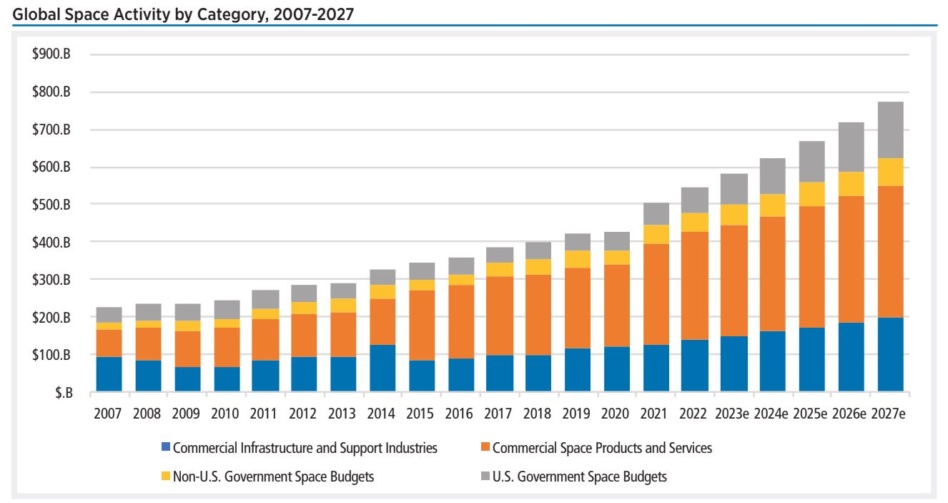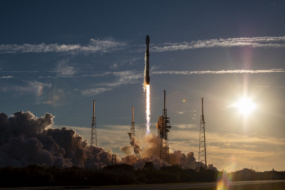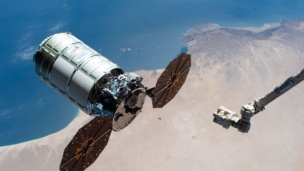It’s that time again—the Space Foundation has released its report on the state of the space economy through Q2 2023, and it’s reporting big numbers for the past year. According to the authors, the space economy reached $546B in 2022 despite turbulent global markets, and they’re only predicting more growth in the coming years.
The Space Foundation believes the space industry is poised to ring in upwards of $800B by 2028, in part because of the surge in launch activity in 2023 compared to the prior year.
Business is booming
The commercial space sector accounts for the largest portion of the current space economy right now—78%, by the Space Foundation’s tally.
In 2022, commercial space companies pulled in $426.6B, up nearly 8% from the year prior. Breaking that down even further, space products and services accounted for about two thirds of 2022 commercial revenue, and infrastructure initiatives made up the remaining third.
Notable year-over-year increases:
- Position, navigation, and timing (PNT) services brought in an additional $16B in revenue
- Ground stations banked an additional $7B
- Launch earned 33% more
A few areas also saw decreases:
- On-orbit servicing, a still-new industry, saw revenues drop from $211M in 2021 to $91M in 2022
- Space situational awareness also saw a drop, down 21% YoY
Civil and military
Government space spending was $9B higher in 2022 than the year before, totaling $119B. The number of nations getting in on the spacefaring game just keeps bumping up, too—in 2022, 51 nations invested in space technology.
On the defense side, the US leads the pack in spending, putting $43B toward national security space programs. The rest of the world spent $11B total (though it’s worth noting that China, the US’s greatest adversary in the space domain, does not make its defense spending public, and the Space Foundation is going off of estimates).
The budget for civil space (mostly NASA, plus a few billion in five other civil agencies) brings the total US government spend on space to $69.5B, nearly 60% of the world’s government spending on space.
The upshot
The long timelines for space projects as well as the space industry’s heavy reliance on government defense agencies as primary customers keeps the sector resilient in the face of changing public markets. Despite lows in the 2022 global economy, the space industry kept on truckin’, and the Space Foundation analysts see mostly upside from here.




